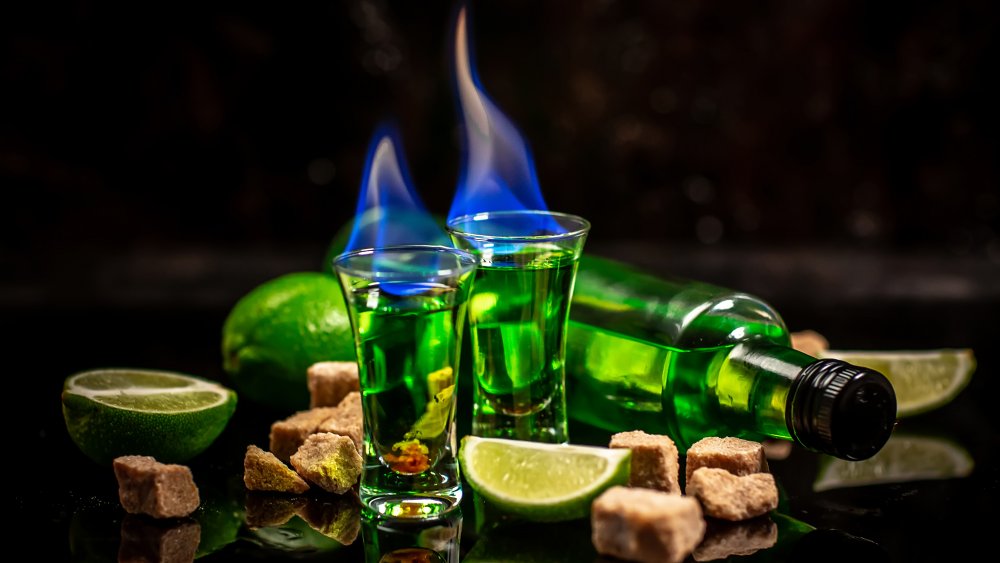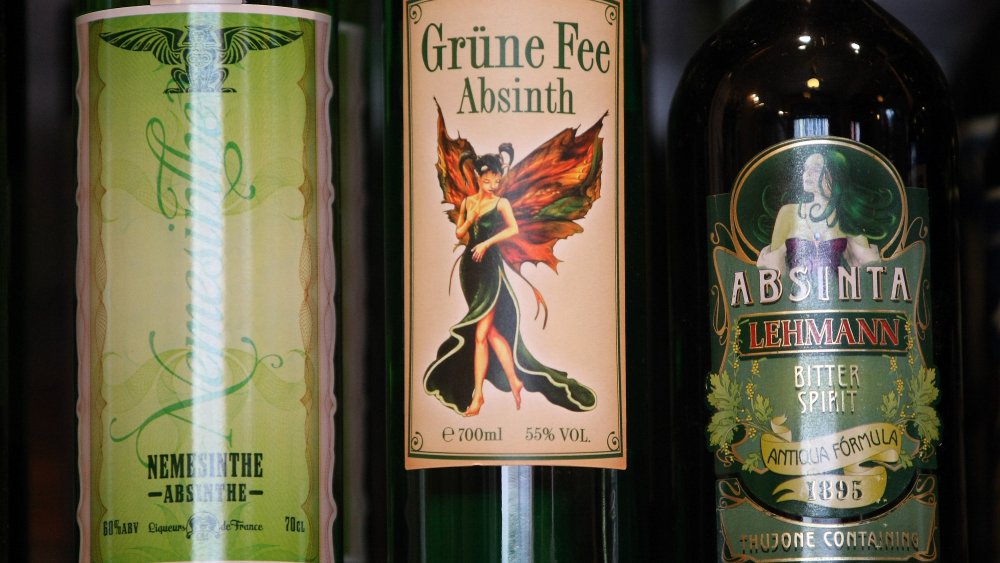Does Absinthe Actually Cause Hallucinations?
As The Book of Absinthe describes, the ever-witty Oscar Wilde once said, "After the first glass of absinthe you see things as you wish they were. After the second you see them as they are not. Finally you see things as they really are, and that is the most horrible thing in the world." But Swiss villager Jean Lanfray saw the horribleness of reality and said, "Hold my absinthe." As the Science History Institute details, Lanfray began a fateful day in 1905 with two shots of absinthe and ended it by shooting three members of his family.
Absinthe wasn't the only poison Lanfray picked that day. He soaked his brain in alcohol, consuming six glasses of potent wine followed by black coffee with brandy and later a liter of wine at home. His wife was repulsed and insulted him. He told her to shut her mouth, and when she dared him to shut it for her, he shot her. He then murdered his four-year-old and two-year-old daughters. In court Lanfray's lawyers blamed his heinousness on a textbook instance of "absinthe madness." A Swiss physician testified that this supposedly pernicious brew incited "ferociousness of temper and blind rages" that temporarily turned Lanfray into a homicidal maniac.
One by one, countries shunned the boozy boogeyman. Belgium banned absinthe in 1905, and Switzerland did likewise five years later. The U.S. outlawed it in 1912. But does the infamous "Green Fairy" really put a spell on people?
Oscar wildly exaggerated absinthe's effects
Despite its reputation as liquid homicide and hallucinations in a bottle, absinthe used to be medicine. Per the Science History Institute, absinthe was an ancient tincture that the Greeks believed aided childbirth. Made by soaking wormwood leaves in wine or other alcoholic beverages, it was also prescribed by famed physician Hippocrates to relieve rheumatism, jaundice, menstrual pain, and presumably sobriety. Wormwood-based drinks continued to be deemed healthy for centuries. During the 19th century, writers and artists began to see absinthe through muse-colored glasses. It became equated with "mad genius." Writers Baudelaire and Rimbaud claimed it had hallucinogenic qualities, and Oscar Wilde likened absinthe to a sunset.
Does that mean antiquity was a parade of drunken Greeks who, as Wilde put it, "[saw things] as they are not?" Did they falsely not see themselves committing hideous murders? Probably not. The element of wormwood associated with hallucinations, thujone, is chemically similar to THC, which can trigger hallucinations but usually does so very rarely, via the journal Cannabis and Cannabinoid Research. But before you film an absinthe-themed remake of Reefer Madness, know that thujone doesn't affect the body in the same way as THC. Excessive amounts of thujone can cause convulsions and spasms, but there's no scientific evidence that it fuels hallucinations. Accounts of absinthe driving drinkers mad are more likely examples of alcoholism.

